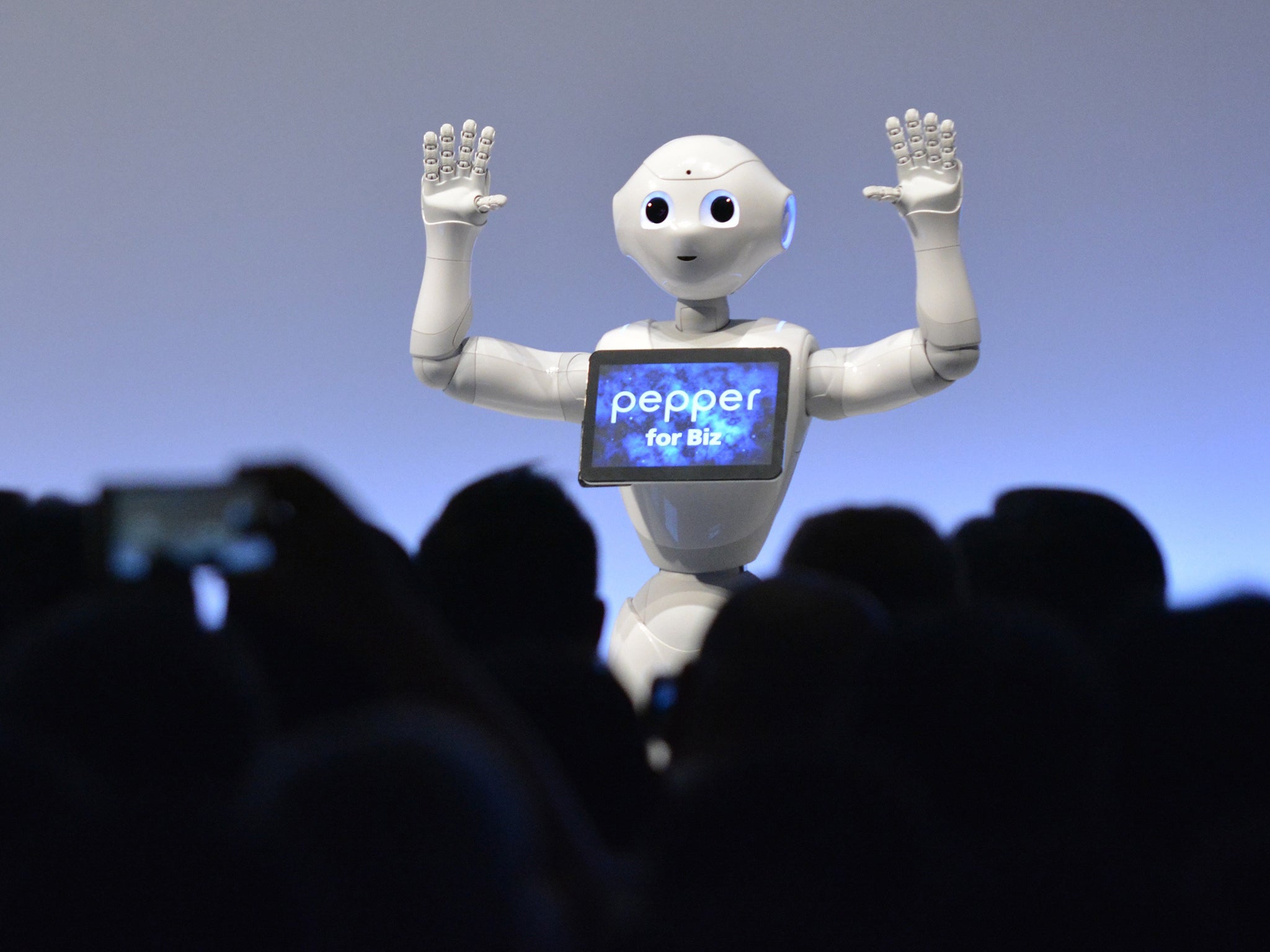Robots are not the enemy. It's time to stop this panic about them replacing us
Imagine if the Luddites had succeeded; technology isn't our enemy


Your support helps us to tell the story
From reproductive rights to climate change to Big Tech, The Independent is on the ground when the story is developing. Whether it's investigating the financials of Elon Musk's pro-Trump PAC or producing our latest documentary, 'The A Word', which shines a light on the American women fighting for reproductive rights, we know how important it is to parse out the facts from the messaging.
At such a critical moment in US history, we need reporters on the ground. Your donation allows us to keep sending journalists to speak to both sides of the story.
The Independent is trusted by Americans across the entire political spectrum. And unlike many other quality news outlets, we choose not to lock Americans out of our reporting and analysis with paywalls. We believe quality journalism should be available to everyone, paid for by those who can afford it.
Your support makes all the difference.When I was 10, I thought robots already ran our lives. It was 1984, when the BBC’s Tomorrow’s World was at peak popularity. After a cross-country match, I was driven home by my PE teacher who missed the turning to our road. When I told her, she said: “Oh sorry, I’d gone on to auto-pilot.” For about half an hour, I was seriously impressed that my teacher had a car that could drive itself at the touch of some secret button, until I got home and my Dad told me it was just a figure of speech.
Three decades on driverless cars do exist, such as those being developed by Google. Several US states have given approval for road-testing, and it won’t be long before such vehicles are in common use. The pace of progress in artificial intelligence (AI) is so fast that it has triggered alarm, leading to a Panorama investigation this week, entitled “Could a Robot do my Job?”
Our feeling of vulnerability in the face of AI isn’t helped by incidents like the robot that killed an assembly line worker in a German car factory earlier this year (though investigators believe the accident was down to “human error”), or Professor Stephen Hawking, one of the cleverest humans on the planet, warning that true AI, where robots can think for themselves and override human control, will wipe out mankind.
There is a more immediate, less cataclysmic fear: that we will literally be made redundant by machines that can do our work. This fear is well-founded; after all, it happened on a massive, unstoppable scale for physical labour in the Industrial Revolution. Now the Technological Revolution is swallowing up jobs where mental skills are needed – such as in call centres, clerical and secretarial roles, and other white-collar sectors. Panorama featured a study by Deloitte and Oxford University showing that 800,000 jobs have been lost in the UK in the past 15 years because they have been replaced by computers or machines.
But – and this is obviously not reassuring to someone who has lost their job to a computer – can we as a society, as the human race, not afford to relax a little about the march of robots? The Deloitte study also showed that, in the same 15-year period, three million new jobs were created, and those jobs paid higher salaries. The authors insist this higher number is not just because the economy has been growing in that time, but that technology can actually create jobs for us humans to do. The problem that leaves us is that many of the 800,000 people who lost their jobs tended to be low-skilled, and they are not the same individuals who walk into the new jobs.
There are answers to this. First, we need to improve the skills of adults who are being left behind by this revolution. The Government and industry focus is on young people through apprenticeships, which is right, but we also need investment in reskilling the over-45s who are out of work.
Second, we should place a higher value on the jobs that robots simply cannot do. AI is unable to match the creativity of humans, so the creative industries should be better funded. But so should all those jobs where human empathy is needed, such as teaching, childcare, social care and nursing. These also happen to be the jobs where there are huge shortages – partly because they are so badly paid. For a race that is supposedly so self-interested, we have placed very little value on the roles where we look after each other.
So, in future, if there is a job only a human can do, then it needs to carry a higher salary than it does now. What’s more, these quintessentially human roles can be made easier through technology, leaving the individual doing that job with more time to care or teach, or to be creative.
What is the alternative? There’s no point in trying to put a brake on technological change, to run away from the computer that wants to help us, robotic arm outstretched. Imagine if the Luddites had been successful in halting the Industrial Revolution. As damaging to local communities as the closure of coalmines was, who would send their son down the pit now? The exponential growth in technology may seem frightening, but the only way we will survive it is to embrace and run with it.
Join our commenting forum
Join thought-provoking conversations, follow other Independent readers and see their replies
Comments